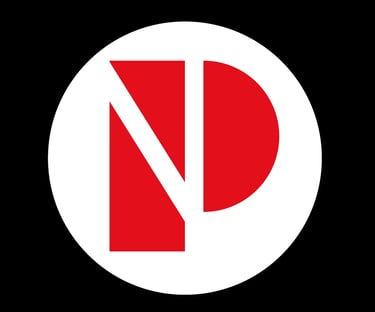The Best Way to Listen So People Feel Understood
7/23/20254 min read


Communication is the unseen thread that runs through all aspects of our lives whether it be personal relationships, the business world, or even social media. In 2024, with technology racing ahead and remote work the new norm, the skill of effective communication as well as empathy and persuasion is not an option but a necessity. Lousy communication creates conflict, confusion, and inefficiencies, while good communication creates trust, cooperation, and success. Harvard Business Review has found that 69% of managers don't feel comfortable communicating with employees, resulting in lower morale and productivity. This goes some way to show the just how important it is to master the way we communicate.
One of the most fascinating aspects of communication is that it's not just all about words. Albert Mehrabian's work famously showed that only 7% of what we communicate is conveyed through words, compared to 55% body language and 38% tone of voice. What that tells us is that even when you say the right words, your body language, facial expression, and tone of voice can totally transform your message. Say the words, "Great job," to a colleague, but don't make eye contact and cross your arms never will they take you seriously. That's why being able to handle both verbal and non-verbal signals is crucial, particularly in the workplace where impressing is key.
Written communication is another difficult one for most people. With emails, instant messaging, and social media controlling our lives, brevity is the key. A poorly worded email can cause misunderstandings, delays, or even a broken relationship. George Bernard Shaw reportedly said, "The single biggest problem in communication is the illusion that it has taken place." Far too many times, we believe our message has been received when, in fact, the recipient has interpreted it differently than we intended. To prevent this, experts suggest the "KISS principle" (Keep It Short and Simple) sparing unnecessary jargon and getting straight to the point.
Active listening is yet another pillar of effective communication. Communication is not merely speaking well, most believe. Listening is just as if not more important. Stephen R. Covey, author of The 7 Habits of Highly Effective People, said, "Most people do not listen with the intent to understand; they listen with the intent to reply." That's why there are misunderstandings. Listening involves actually focusing your attention on the speaker, asking for clarification questions, and paraphrasing what you've heard. For instance, saying, "So what I'm hearing is…" keeps you and the other person on the same page.
Emotional intelligence (EQ) also plays a massive role in how we communicate. People with high EQ can read the room, modulate their tone, and navigate difficult conversations with compassion. Daniel Goleman, a leading researcher on emotional intelligence, states that "Emotional self-control delaying gratification and stifling impulsiveness underlies accomplishment of every sort." This is especially true in high-stakes conversations, when emotional reaction can fan the flames of conflict. Instead, pausing before responding and acknowledging the other person's feelings can lead to more constructive outcomes. Even with the best of intentions, there are still barriers to communication. One of the largest problems is mishearing people hear what they want to hear, not what was actually said. Distractions, particularly in our digital age, also get in the way of actually having conversations. How many times have you been on a Zoom call while at the same time checking email? A University of California study established that it takes a whopping 23 minutes to refocus after an interruption. Cultural differences also muddy the waters, as gestures, humor, and even silence are perceived differently around the globe. For example, in some cultures direct eye contact is a confidence builder, while in other cultures direct eye contact is considered aggressive.
So how do we enhance our 2024 communication skills? Practicing public speaking, either by attending groups like Toastmasters or, more simply, by recording yourself back, is one potent tactic. Another important tactic is to seek feedback requesting truthful feedback from trusted friends or colleagues on how you're communicating. Writing more, either by maintaining a journal or blogging, can also enhance your ability to speak clearly. And AI applications like Grammarly can refine written communication, and Otter.ai can record meetings so you can listen back to conversations for clarity.
At work, communication can break or make careers. Effective communication by leaders results in trust and motivation of the team, while leaders who cannot communicate their vision find themselves at odds with disengagement. According to Gallup, teams with good communication are 50% more likely to experience lower employee turnover. Companies now spend money on communication training because they realize technical skills are not enough soft skills are just as important.
In the end, communication is something that can always be enhanced. As Brian Tracy once stated, "Communication is a skill that you can learn. It's like riding a bicycle or typing. If you're willing to work at it, you can rapidly improve the quality of every part of your life." Either through listening actively, improving the utilization of body language, or even just waiting to speak for a moment, small changes can make giant leaps. In a world where misinformation travels quickly and everyone has short attention spans, being a clear, compassionate communicator is what makes you stand out. It deepens relationships, builds career success, and even lowers stress levels by decreasing misunderstandings. So next time you are communicating, writing, or even texting, remember: communication isn't what you say it's how well you connect.
Discover all the information you need in one place.
© 2024. All rights reserved @ PictorialNuggets.com


